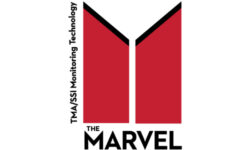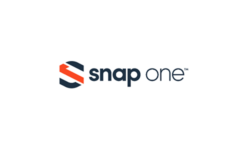Accessing Bigger Profits

Especially in a struggling economy, security contractors must act diligently whenever possible to present customers with a host of value-add features and services on top of an initial security solution sale.
Access control systems provide an excellent opportunity in many cases to increase profitability by upselling clients on total access solutions. The potential for increased revenue rests in building scalability for future upgrades along with offering recurring revenue services and various equipment options.
What’s more, an integrated access control system can expand an organization’s ability to meet future needs at its own pace. Such a scenario provides the security contractor the chance to establish long-term client relationships like never before.
Upselling as Customer Service
The craft of upselling should be thought of as much more than a sales technique. There is a strong customer service component to it as well. In the case of discussing access control, it’s important to gauge the customer’s true needs. Instead of a one-time sale, is the client better served with a long-term solution that can be modified to meet company expansion and other variables? Offering a more versatile solution can fulfill additional customer needs. Indeed, think lasting relationship.
“A key thing for our company is that we look at the potential of a future system,” says Scott Lord, vice president of All Systems Designed Solutions Inc., a Kansas City, Kan.-based systems integrator. “We look at what our clients needs are for the next three to five years for securing their building. That’s where an upsell comes in.”
For Joe Riotto, president and CEO of Advanced Video Surveillance in Fairfield, N.J., the strategy of when to discuss add-ons begins with the initial sales conversation. “We try to sell everything upfront. We don’t go back into a client and sell,” he says. “At the time of sale, we discuss various features that can be incorporated.”
Oftentimes, profitable upsell features do not fit a customer’s financial limitations; however, if the client is made aware of desirable capabilities available to them, they may very well budget for it the following year.
It’s important to be mindful when trying to boost the profit margin on an access control solution by selling add-on features. For example, a badging option is a likely upsell, but profitability can be relative. Consider: A customer may want a lot of changes to the badging configuration and monopolize an integrator’s time with creating and configuring that piece of the system.
A different module upsell may only take a short time to configure. For instance, adding a few IP cameras to the system may be an easy add-on if the system supports it. So it depends on what the option is as to whether or not it’s ultimately profitable.
Scalability Keeps ‘em Coming Back
Leading security management manufacturers today are building products that naturally grow and expand with an end user’s business operations. As the company’s needs change, the system can accommodate and almost anticipate those future needs.
“We never thought some of the systems installed today would grow to their current size,” says Matt Barnette, vice president of sales and marketing for Torrance, Calif.-based AMAG Technology. “Providing a security system that can scale beyond a customer’s current requirement is a big advantage to the integrator and end user. They want to buy a system once and have it grow and change as their needs change.”
Design the system so growth will not be too costly for your client. Anticipate future needs to make this happen. By providing a scalable solution, it helps ensure the customer will come back to you for the upgrade rather than a competitor. It’s an easy sale when a customer looks to you for expertise.
“System additions are a lot easier to sell than system replacements and they rarely go out to bid,” says Craig Ehrich, a senior applications engineer with Tukwila, Wash.-based security management systems provider Entrance Controls. “A number of our larger customers started out with a few areas or facilities being controlled and have expanded to company-wide systems.”
Educating customers about total security management and its overall benefits helps facilitate scalability. Integrators can start clients on a small eight- to 16-door reader system, and can upgrade the software or add a single-door controller. A hybrid solution can also be created while keeping the same user interface. Most larger systems started out just that way because the initial focus was visible security and it grew from there.
Playing the Role of Educator
A large part of working with a client is learning what type of security is important to them. Clients often think they should put a reader on a door and open it with a card. Integrators can present their customers with different options that may suit their needs better. Have they thought about smartcards, keypads or biometric readers? Would dual authentication be a better fit for a facility or certain areas within a facility like a bank vault, computer lab or IT server room? Presenting different equipment options educates the clients and opens the door for more revenue.
Because many end users are not knowledgeable about how different equipment options apply to their security needs, it’s important to educate them to put together an effective security plan.
“Since we design our system with scalability and flexibility, we bring options to the client,” Lord says. “Bigger access control systems can’t be installed with everything because that’s overwhelming. We look at the basic need and facility type and look at what other equipment would be beneficial to that client and how they want to secure their facilities. It increases profitability.”
Build RMR With Managed Services
Selling service contracts has become increasingly popular in recent years to increase recurring revenue. These agreements can be drafted based on customer needs and requirements. The client understands they are paying for a specific level of service. Examples include performing preventative maintenance visits twice a year, committing to being onsite for a designated number of hours in the event of a system failure, and providing free software upgrades.
For the integrator, this is additional revenue they can count on to increase annual profits. It requires less work because there is no selling and bidding involved, and the approval process is eliminated.
“Offering service contracts on equipment and labor is worthwhile because when the customer calls for service, you don’t have to wait for the customer to get approval to get it fixed,” says Riotto. “You just replace the equipment because it was covered under the contract.”
Because manufacturers are more software driven nowadays, systems are more capable of providing remote diagnostics. This trend is helping service contracts become more prevalent since a request for immediate support of a problem often requires an existing agreement be in place.
Managed services agreements are a natural fit for access control systems. For end users that don’t want to have security management software installed in their facilities, integrators have found that monitoring their client’s system is an easy profit source.
A managed access control agreement offers end users all the benefits of a professionally managed and monitored access control system, while integrators reap a healthy recurring revenue stream. A monthly service package can include account setup, panel programming, card adds/deletes, plus handli
ng the client’s change requests.
Managed access control saves the customer a large upfront installation cost, allowing them to budget a few dollars a month to have someone monitor their system for them. The integrator’s service agreement can include hardware upgrades every few years on a schedule; the customer doesn’t pay upon replacement since the cost is built into the contract.
Future Proof to Increase Profits
Future proofing an access control system is another way of providing the best possible service to end users. Importantly, it also serves as another means of establishing trust with the customer.
“We go out of our way to help our customers and future proof them and ourselves,” says Riotto. “If you have a client who is satisfied with your services, it goes a long way to establish trust with that client. If they trust you, they will stay with you. If they don’t trust you, they’ll go somewhere else.”
To help establish that trust, integrators must choose access control products that have a strong track record. Installing an access control system that is engineered for growth or that provides features that are considered emerging standards like IP video are ways to future proof a client.
Staying with standardized products from reputable companies is the key. Be selective and be wary of installing the lowest cost equipment. While providing a cheap product to your client may be tempting, an integrator must offer the equipment that meets the customer’s needs even if it is more expensive. Usually, higher quality products have the capability to expand.
“Things are changing so dramatically that any system you put in is outdated in a year or two,” Riotto says. “You have to select higher-end providers in the long run; that pays back a large dividend because they are the ones that are going to still be around.”
Future proofing clients is critical to the future of any integration business, says Lord. “When you service the customer to a higher standard, it doesn’t matter what the system is,” he says. “This is when the client relies on you to raise the bar and meet their needs at the lowest cost and know they are going to be taken care of. Future proofing a client is an absolute necessity.”
Entrance Controls’ Ehrich says his company only represents manufacturers that have a proven history and commitment to customer and product support.
For example, Portland Int’l Airport in the Northwest is still using MicroNODE door controllers manufactured by AMAG Technology that were installed in the mid-1980s. Those MicroNODE door controllers are working alongside the newest generation of Symmetry M2100 intelligent controller installed this spring. “Our primary access control product is manufactured by AMAG and their current version of software still supports the first generation panels they manufactured,” says Ehrich. “Adding onto a system is far easier to sell than replacing and more profitable as well.”
Establishing a strong relationship and trust is how integrators will continue to be profitable. Provide customers with as much information as possible so they can make intelligent decisions and eliminate the guesswork. Design an expandable security system and make yourself available to your customers. Build that rapport and you’ll have a customer and profit center for the life of the security system and beyond.
Kim Rahfaldt is Public Relations Manager for Torrance, Calif.-based AMAG Technology. She can be contacted at (920) 262-9822 or [email protected].
If you enjoyed this article and want to receive more valuable industry content like this, click here to sign up for our FREE digital newsletters!

Security Is Our Business, Too
For professionals who recommend, buy and install all types of electronic security equipment, a free subscription to Commercial Integrator + Security Sales & Integration is like having a consultant on call. You’ll find an ideal balance of technology and business coverage, with installation tips and techniques for products and updates on how to add to your bottom line.
A FREE subscription to the top resource for security and integration industry will prove to be invaluable.













